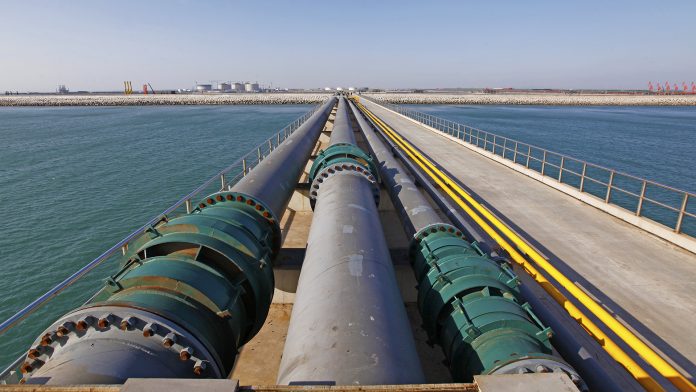Major Threats to Pipeline Integrity


Pipeline integrity ensures a pipeline and all its related components are running properly and in good working condition. It involves and ensures that pipelines are designed, built and operated to be safe, reliable and sustainable. Pipeline integrity management is done through every aspect of the pipeline life cycle – from design and construction to operations, maintenance and retirement.
There are many challenges to the integrity, or overall safety, of a pipeline: Corrosion, cracks caused by the environment, mechanical damage (strain, dents, gouges), manufacturing or construction defects, equipment failure, operation error or external forces.
Corrosion
Pipelines are prone to both internal and external corrosion. Pipelines are vulnerable to internal corrosion because of the materials they transport. Many carry liquids and gasses that are hazardous and corrosive and this degrades the surface of the metal. Highly pressurized pipelines are also susceptible to hoop stress failures as well. External corrosion of a pipeline is caused by the environment outside of the pipe. The acidity and moisture content of the soil can be major culprits in degrading the metal.
To address this threat, ongoing and period assessments are conducted through in-line inspection tools, direct assessment, and in some instances, pressure testing.
Metal Fatigue and Creep
Fatigue is a process of structural degradation caused by fluctuations or cycles of stress or strain. Such stresses or strains are typically concentrated locally by structural discontinuities, surface irregularities, damage or defects. Metal fatigue causes damage to a pipeline over time when it’s stressed by a heavy weight being placed on the metal. Underground pipelines are especially susceptible to metal fatigue because of the weight of the soil and/or anchor blocks on top of them.
Creep is the deformation of a pipeline when it’s exposed to elevated heat for long periods of time. It is a generally slow developing form of degradation occurring in metals under stress and higher pressures. The amount of creep deformation that will be experienced is highly dependent upon the level of stress, level of temperature, and material properties of the metal. Deformations caused by creep eventually cause damage that may result in a rupture of the affected equipment components.
Metal fatigue and creep are more common in pipelines that transport steam and other hot liquids under pressure. This can weaken the integrity of the pipeline as it ages and can cause pipeline failures if not detected and repaired.
Manufacturing Defects and Transportation Damage
While in transport, pipelines may face the risk of failure through manufacturing defects or damages sustained. Defects in the pipeline can occur by improper processing of the metal or welding defects during its initial construction. The handling of the pipe during transportation may cause dents or buckling which compromise the pipeline.
To address this threat, geometry in-line inspection tools are used to inspect for mechanical damage on the pipeline.
There are many ways to mitigate these challenges including:
- Design and construction standards
- Coating on the pipe and cathodic protection system (technique to control corrosion)
- Inspections using computerized tools (in-line inspections) and repairs
- Damage prevention program
- Pressure control
- Onsite patrols
These threats weaken pipelines and significantly shorten their lifespan. It’s important that organizations take preventative actions to ensure their pipelines remain viable and safe.
Pipeline Integrity Assessment – Practical Aspects is a 3-day training course held 29 – 31 October 2018 (Kuala Lumpur) where participants will be introduced to the technical basis for determining pipeline integrity. The seminar will provide information, reinforced by case studies and exercises on pipeline defects, such as corrosion, cracking, and third-party damage. Methods will be discussed that can be used to make decisions on whether defects are fit for service. Participants will gain in-depth knowledge on practical aspects, corporate policies, regulation and standard practices of pipeline integrity assessment. For more information, please contact us at info@opuskinetic.com.
Interested to read other related articles? Check out: Practical Aspects of Pipeline Integrity Assessment
Opus Kinetic believes that people are why organisations are successful, and giving people the knowledge to perform well at their job is integral for success. We pride ourselves as the premier provider of knowledge, offering acclaimed in-house trainings, and many others professional training courses spanning from various industries. Our training courses are well researched and updated with the latest industry trends. For more information on our professional training programs, visit us at http://www.opuskinetic.com/training.
